Countless men and women courageously confronted the shameless impositions of their rulers in all phases of Communist rule and all countries of the Communist world system. Throughout this period, they fought in the most varied of contexts for democratic national independence of their respective homelands. They demanded free elections, freedom of assembly, freedom of speech and opinion, built solidarity with the oppressed and persecuted of their and other regimes, fought to assert their rights as workers and religious believers, as scientists and as members of national minorities, as artists and vigilant citizens. They distributed leaflets, painted slogans on walls, led demonstrations and strikes, deluged their rulers with petitions and solicitations, organised vigils, strikes and silent prayers, or simply decided that they would ‘live by the truth’ regardless of the state harassment this would inevitably entail. Some did so by themselves and in secret, while others were joined by friends, colleagues or fellow religious believers. Others would become active in civil rights movements, peace groups or artist communities – in some countries, such as Poland, in concert with millions of other people organised in free associations and trade unions. On this website, we present you with a selection of biographies of some of these brave men and women.
The structure, scope and success of opposition and resistance against Communist dictatorships depended on the specific conditions in each country, the extent of repression and the degree of solidarity among the oppressed. Each country affiliated to the Communist Bloc had its own characteristic history of opposition and resistance, shaped by countless individuals. As diverse as the biographies of dissidents, civil rights campaigners, peace activists and oppositionists were, and as slim as their chances of success may have been over the years – these are the people to whom we owe the eventual collapse of the Communist dictatorships in Eastern Europe.
The dissident biographies on this website represent only a small selection, but one which we hope nevertheless provides an impression of the multi-faceted oppositional activities conducted in Eastern Europe between 1945 and 1989–91. The site does not claim to depict the entire Eastern European dissident landscape in its full complexity. The texts by Eastern European dissidents are taken from the ‘Dissident Encyclopaedia’ (‘Słownik dysydentów’), published by the Warsaw-based ‘Karta’ Foundation in Poland in 2007. The texts relating to the GDR were kindly made available to us by the Berlin-based Robert Havemann Society and were originally from the reference book ‘Für ein freies Land mit freien Menschen’ (‘For a Free Country with Free People’), published in 2006 and edited by Ilko-Sascha Kowalczuk and Tom Sello. We are very grateful to both cooperation partners.
The ‘Biographical Encyclopaedia of Resistance and Opposition under Communism, 1945–91’ is a joint project by the Federal Foundation for the Study of the Communist Dictatorship in Eastern Germany, the ‘Karta’ Foundation in Warsaw and the Robert Havemann Society in Berlin. The website in its current form represents only a first step and will be continuously expanded with additional countries and biographies. We therefore ask for your understanding should you find any important personalities to be missing.
Translated by Jan-Peter Herrmann
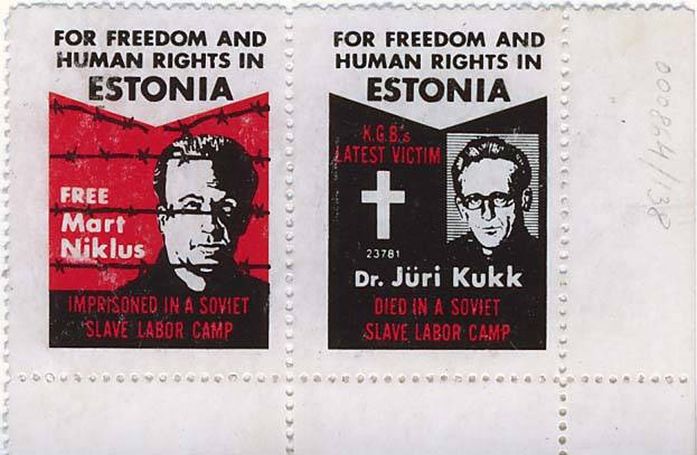
On this stamps, the Estonian American National Council, the representative body of Estonian exiles in the US, demands the release of Mart-Olav Niklus from political imprisonment and commemorates Jüri Kukk, who had died during a protest hunger strike in prison.
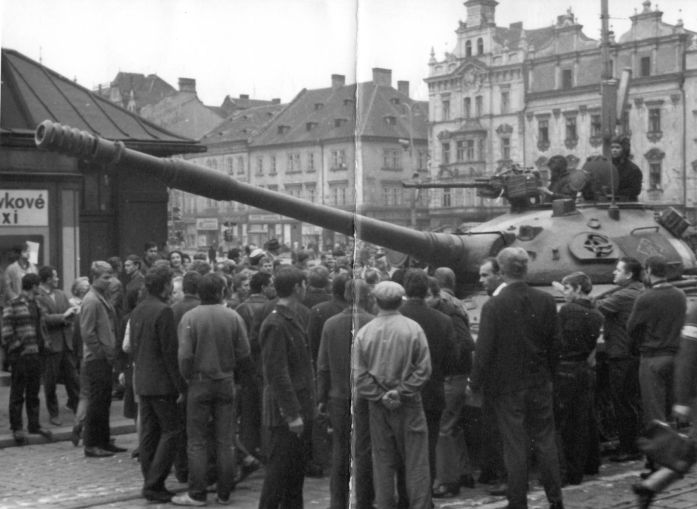
Crushing of the Prague Spring in Czechoslovakia: Soviet tanks in Plzeň, August 1968
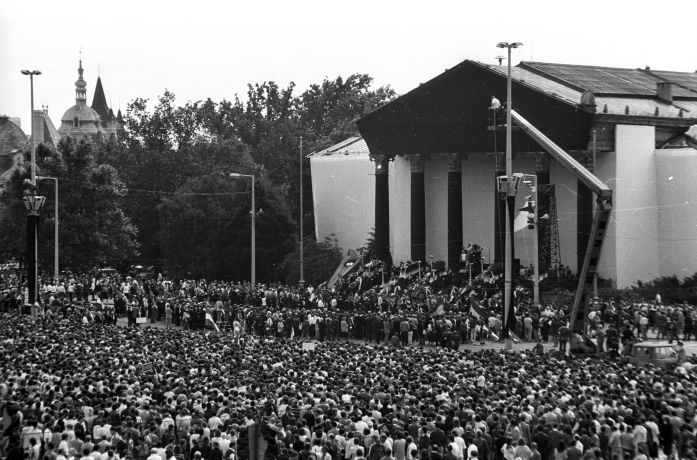
The end of Communist dictatorship in Hungary: Celebrations mark the transfer of the remains of Imre Nagy and 55 others killed during the Hungarian Revolution of 1956. Budapest, Heroes’ Square (Hősök tere), 16 June 1989
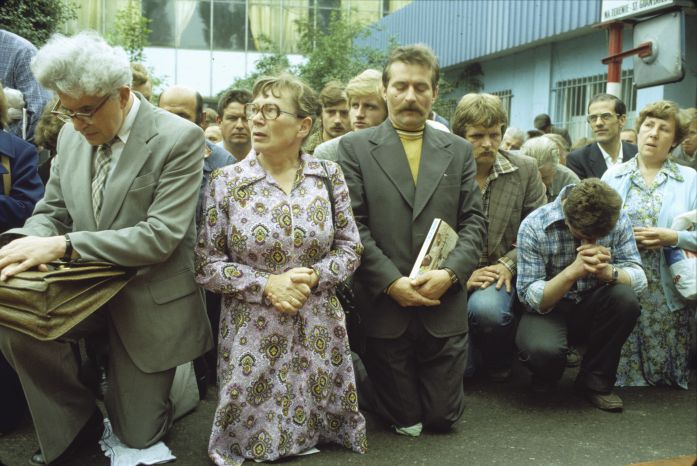
The era of the Polish trade union Solidarność (‘Solidarity’): Lech Wałęsa (centre) and Anna Walentynowicz (next to him on the left), whose release had triggered the strike at the Lenin Shipyard in Gdańsk, during a prayer service at the occupied shipyard.
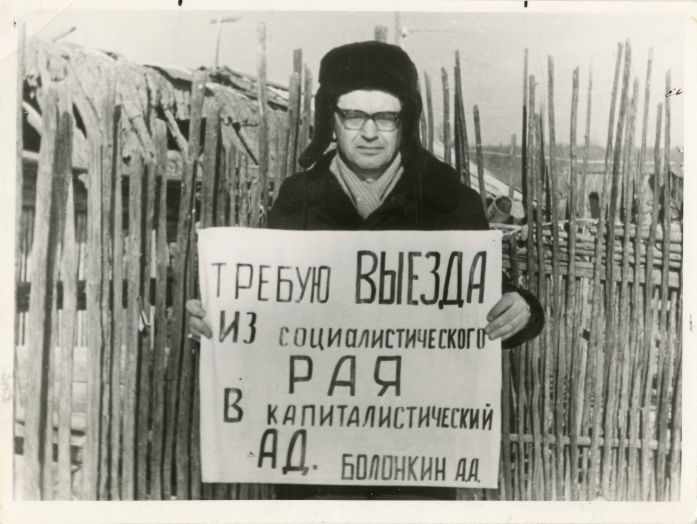
‘I demand permission to leave the socialist paradise for the capitalist hell’: protest by aerospace engineer Alexander Bolonkin in 1978, during his internment and banishment to Bagdarin in the Soviet republic of Buryatia (Siberia). Alexander Bolonkin was arrested by the KGB in 1972 for distributing Samizdat literature and reading texts by Andrei Sakharov and Alexandr Solzhenitsyn. He spent a total of 15 years in prison camps and internal banishment. Following his release in 1987, he emigrated to the USA.
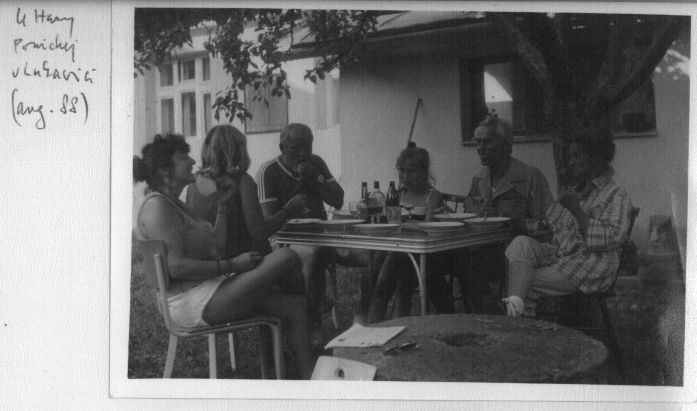
Miroslav Kusý (centre) und Hana Ponická (far right) in August 1988. Together with Kusý, author Hana Ponická was among the Slovak signatories to the Charta 77 and active in the Civil Rights Movement (‘Hnutí za občanskou svobodu’) in late 1988.
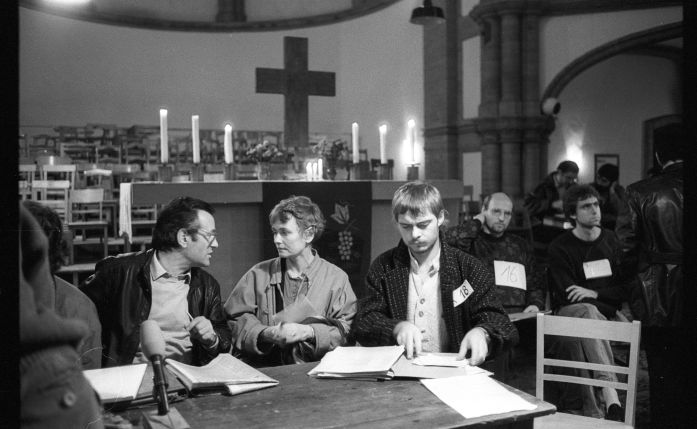
Bärbel Bohley (centre) at the founding meeting of the Neues Forum (‘New Forum’) in the Gethsemane Church in the Berlin district of Prenzlauer Berg on 10 November 1989
